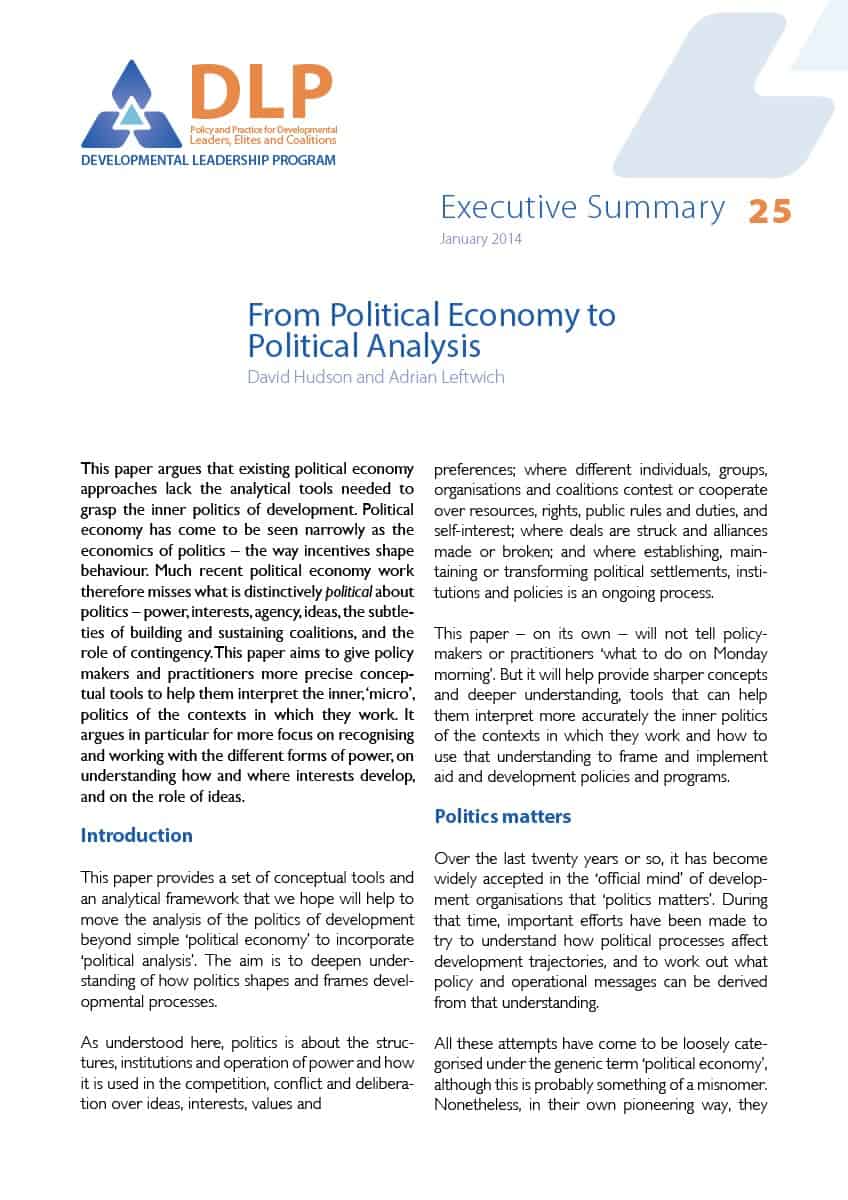This paper argues that existing political economy approaches lack the analytical tools needed to grasp the inner politics of development. Political economy has come to be seen narrowly as the economics of politics – the way incentives shape behaviour. Much recent political economy work therefore misses what is distinctively political about politics – power, interests, agency, ideas, the subtleties of building and sustaining coalitions, and the role of contingency.
This paper aims to give policymakers and practitioners more precise conceptual tools to help them interpret the inner, ‘micro’, politics of the contexts in which they work. It argues in particular for more focus on recognising and working with the different forms of power, on understanding how and where interests develop, and on the role of ideas.
Download the summary below or see the full paper.










